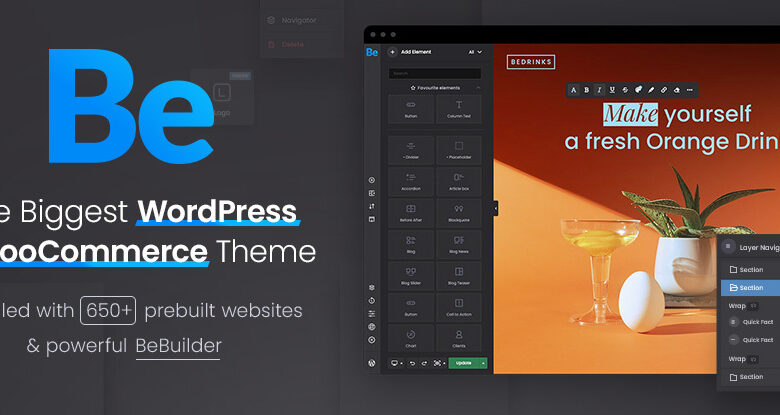With WordPress powering over 25.4% of websites in the world – and more than 76.5 million blogs – there’s a high probability that you’re going to use WordPress for your website at some point.
WP Engine is a managed web host specifically for WordPress; it’s a bit different from traditional shared hosts because it was built and fine-tuned for WordPress – from the ground up.
People have varied opinions about WP Engine: there’s a group that believe that it’s well worth the money, while another group believe it’s a waste of money. Considering that their cheapest plan is $29 per month, and can easily go up to $249 per month, it can be difficult deciding if WP Engine is the web host for you. This review will answer your questions about WP Engine in an unbiased way that makes it easy for you to decide.
A Quick Overview of WP Engine Hosting Plans
At the time of writing this, WP Engine has three main hosting plans. They are:
The Personal Plan: This is the cheapest plan, and it costs $29 per month. This plan limits you to one blog installation and 25,000 monthly visits. With this plan, you also have a limit of 10GB local storage.
The Professional Plan: This plan costs $99 per month and allows you to host 10 sites with a combined maximum of 100,000 monthly visits total. With this plan, you get 20GB local storage.
The Business Plan: This plan allows you to install up to 25 sites with a combined total of 400k monthly visits. It comes with a local storage limit of 30GB.
The “Personal,” “Professional,” and “Business” plans are hosted in a shared environment. For more advanced, dedicated plans you can email or call their support.
PROS OF USING WP ENGINE
Here are some of the advantages to using WP Engine:
Superfast Hosting: Users and critics alike, one thing everybody agrees about with WP Engine is that they are superfast. WP Engine is superfast for so many reasons, including the following:
- WP Engine prevent users from installing plugins that can be server hogs – plugins that use all server resource, thus preventing your site from loading properly and fast – so speed is usually guaranteed.
- WP Engine is designed from scratch with WordPress in mind, so they have the best configuration for faster WordPress sites.
- WP Engine includes CDN with their more expensive plans. If you use their “Personal” plan, it will cost an extra $19.99 monthly to use a CDN.
- WP Engine uses their own in-house, scalable EverCache technology to ensure your site stays online and fast during traffic spikes.
Built and Tweaked for WordPress: Constant site crashes, extremely slow websites, website not functioning properly due to WordPress issues, etc? With WP Engine, you won’t experience these problems. This is because WP Engine has been built and tweaked for WordPress, so an upgrade or tweak to your blog won’t crash your server. It also ensures optimal performance for WordPress sites.
Strict Management, so you can Count on Quality Control: WP Engine is very strict about what happens to sites on their server, even to the extent of disallowing certain plugins that they believe will cause server problems. This policy protects your site from actions you can take that can crash your server and from the actions of other WP Engine users.
Uptime: WP Engine is very reliable when it comes to uptime, and many people testify to having 100% uptime with them.
Staging: One of WP Engine’s biggest advantages is their staging environment; this is basically a replica of your site that is not available to the general public. In WP Engine’s staging environment, you can install plugins, update themes, redesign your site, and tweak your settings to see how things turn out before rolling out the changes to your main site. This can prevent a lot of problems, including server crashes or your site not displaying properly due to changes you make.
Backups: WP Engine Offers instant back up and 1-click restore, making it easy to back up and restore your site without hassles.
Security: WP Engine is very secure, mainly because they take regular backups of your site and do regular scans for malware. WP Engine also uses SFTP — instead of FTP – and they will automatically block any IP that unsuccessfully attempts to login to your site three times in a row. WP Engine also offers to fix your site for free if it is hacked.
Overage Pricing: While WP Engine can be quite costly because they price based on the number of visitors to your site, they remedy the restriction on the number of visits on their plans with their overage pricing system. With WP Engine’s overage pricing, unlike with other hosts, your site won’t be automatically pulled offline if you exceed the traffic limit. Instead, they’ll charge you overage of $1 per extra 1,000 visitors over your limit, and they will add it to your next bill.
Support: WP Engine offers support both via phone and email, as well as via live chat from 6AM – 8PM CT. Their support is managed by WordPress experts, so it is reliable.
CONS OF USING WP ENGINE
Here are some of the downsides to using WP Engine, which you should consider before going with them:
WP Engine Can Be Restrictive: If you’re a traditional WordPress user, a problem you might have with WP Engine is their restrictiveness. A good example of this in action is their “disallowed plugins policy.” Generally, you should be able to install any of the 36,000+ plugins in the WordPress plugin repository on your blog, but it is against WP Engine policy to install plugins that they believe conflict with some of their solutions, that use a lot of server resource, that send emails through WordPress, or that they believe could make your blog more vulnerable. Here’s a full list of their disallowed plugins.
How Visitors are Tracked: A major complaint that users have with WP Engine is how visits are tracked. This has been a very sensitive topic considering the fact that WP Engine charges users based on the number of visits they get.
WP Engine visit tracking isn’t too reliable, and you’ll often find that it doesn’t correlate with what popular analytics services – Google Analytics, Clicky Analytics, etc. – track. This is because major analytics services track genuine visits to your website, but WP Engine tracks both genuine visits and visits from bots. This was recently remedied when they announced in October 2015 that they’ve stopped tracking visits from bots, but this is still worth noting in case you notice a slight difference between your analytics data and WP Engine’s visitor tracking.
Very Expensive: WP Engine is very expensive compared to other solutions, especially traditional shared hosts. Their cheapest plan allows only 1 blog and 25k visits monthly for $29. For the average blogger, especially someone who blogs as a hobby, this can be costly. On the other hand, they make a pretty compelling point about how much people are willing to spend on watching tv
WP Engine Can Appear a Bit Technical if You’re Used to cPanel: If your experience has mainly been with shared hosts, you’ve most likely operated a website via cPanel. This won’t be the case with WP Engine, as they have their own special control panel.
Lack of Email Hosting/Support: Unlike with shared hosts, WP Engine does not provide you with email support or webmail access. It also places a restriction on how your WordPress site can be used to send emails, but you can use Google Apps as a workaround to this.







imo if you cant pay that money, just get some vps (from digital ocean or ovh).
Need to waste a couple of hours to setup but for some ppl it is worth.
For a webmaster, WPengine is worth every penny. Especially when you get to the enterprise level pricing.
So far I am happy with wpengine hosting 20+ WordPress sites
I was with WPEngine back in Feb, 2015 while trying to launch a new site. I had several problems with speed and caching and while tech support was punctual, they ultimately were of little help. I switched to Flywheel Hosting and while they offered to do the migration for me, I chose to do it myself so I would know how everything was set up. I had a couple problems with the migration but, Flywheel support was excellent in helping solve those issues. By the end of that day, the site was up, and running almost 30% faster than with WPE. We fixed a few more issues that were not even hosting-related, and the site was launched 5 days later. Still with Flywheel. Their support is awesome, and they are willing to help with any kind of problem. They also do their own caching which I have found to be excellent; so I do not have any WP cache plugins installed. However, Flywheel – like WPE – also restrict plugins although not as tight as WPE.
“Their support is managed by WordPress experts, so it is reliable.”
– In my experience, I have to respectfully disagree.
I’ve been using WP Engine to host multiple client sites, in addition to my own, for almost 3 years now, ad’s their support continues to be incredibly underwhelming. I would not consider the folks I have spoken with to be experts.
I’ve found myself educating them on SSL setup and custom wp-config.php rules. I’ve also had them tell me that things can’t be done on their platform, and then I went ahead and did them myself with no problems.
Their lackluster support and expertise has been my major gripe. I do agree that performance and security are big pros. I have zero concern about being hacked, and my sites load fast.
I have had a slightly different experience with uptime. Most downtime doesn’t last long (10-30 min), but I get an update from their status blog at least once a month about “intermittent connectivity issues” from one of their data centers. Their support platforms also go down more than you would expect for the price you pay for managed hosting.
Jeff has made me even more excited to look into Flywheel.
Hi
Out of curiosity, may I ask, this issue that you faced with their support… was it limited to Tier 1 reps or support in general? Often, I have found web hosts to hire Tier 1 reps that are rarely knowledgeable enough, but after escalating the ticket, you get folks who know what they are talking about.
Did you try escalating the tickets?
Hi Sufyan,
Great question, but unfortunately, even escalating our tickets didn’t always lead to better support or more knowledgable reps. I voiced concerns in an email to their C-level folks, and got a response from a Sr. Manager of Customer Experience. We sent multiple emails back & forth, and even spent 20+ minutes on the phone, discussing my experiences, and how they could make them better. … They didn’t get any better. And not-so-knowledgable tier 1 reps were still providing not-so-helpful responses to tickets.
I was offered a discount on services (which was appreciated), but that was pretty much the end of it. I haven’t been taking on new client projects or setting up new sites on their platform in the past year or so, so I haven’t had to deal with their support team lately.
And I agree with you that hosting companies do that (hire entry-level tier 1 reps, but have more knowledgable staff once you escalate)… but I completely disagree with that approach to business. If you are a hosting company and “support” is something you offer (and some go as far as to talk a big game), then you shouldn’t reply to a help ticket unless you are knowledgable enough to answer it.
And especially if you’re paying for “managed” WordPress hosting, and paying a premium (which, I think WP Engine could certainly be considered as such), you should NOT need to escalate a ticket just to get someone who knows what they’re talking about.
+1 to your thought. I have been associated with many web hosting brands, both for managing their content and also as an advisor/observer, and the “entry-level Tier-1 reps who know hardly anything” model is something even the best of brands indulge in. Though just as you said, if you offer support to your customers, employing less-knowledgeable staff is not an option. I remember that at one particular host, I had to explain the difference between FTP and SFTP to the support rep.
Since you mentioned paying extra for “managed” WP hosting… I also feel that many managed hosts are not worth the good money that they charge. Some, of course, are impressive indeed. Flywheel and even the Enterprise plans of Namecheap or Stable Host have been exemplary for me. On the other hand, my experience with the likes of Pressable and Synthesis has always been below par. That said, since I sometimes work with platforms other than WP too, mainstream hosts are generally more useful for me anyway, as compared to managed WP hosts.
Also, in my experience, small- to medium-sized hosts have generally better staff than bigger ones. Maybe it is the “personal” approach that I like, or maybe it is just that smaller hosts have bigger desire to retain customers, as compared to Walmart-sized hosts.
All good thoughts and valuable insight. Great discussion. Thanks for chiming in, Sufyan.
If you’re just a blogger that has a couple of blogs, you probably can find better deals elsewhere, but the support you get at any host for the lower-tiered shared plans is going to be spotty. Would you put your best guys on those tickets? I have several clients with dedicated servers there, and some complex setups and large sites and tricky stuff going on, and I’m on the phone with WPE a lot. Because of the scale I’m dealing with, I get their A team, and I assure you, they’re experts, and they’re concerned with customer service. I have experience with all the big hosts, and some smaller ones that are awesome, and I generally recommend WPE or Site Ground for my clients that can afford it, because they make my job as a developer easier.
Hey!
Thanks for the post, John, you make some really interesting points here.
I’m a co-founder of Tap WordPress Hosting (the new kid on the block).
It’s without question that WP Engine is a major player in the market but, like you say, when it comes to popularity amongst the WP community, the jury seems to be split (too expensive vs good value). To your point on email, I wonder how many people would agree that not hosting email is a Con of WP Engine’s service? Or for any WordPress host? Flywheel don’t offer email hosting either and at Tap, we also made the decision to stay away from email because it’s really tricky unless your experts at it (and I mean experts!). In our experience, only a handful of users have asked about email and we usually recommend the likes of Google Apps or Rackspace. I would love to hear people’s thoughts on whether they expect email to be included as part of a website hosting service?
I was recently in a meeting with a long-term client who has a WordPress website running WooCommerce. He told me he spends thousands on WPEngine, but finds it incredibly easy to use and manage a deploy environment